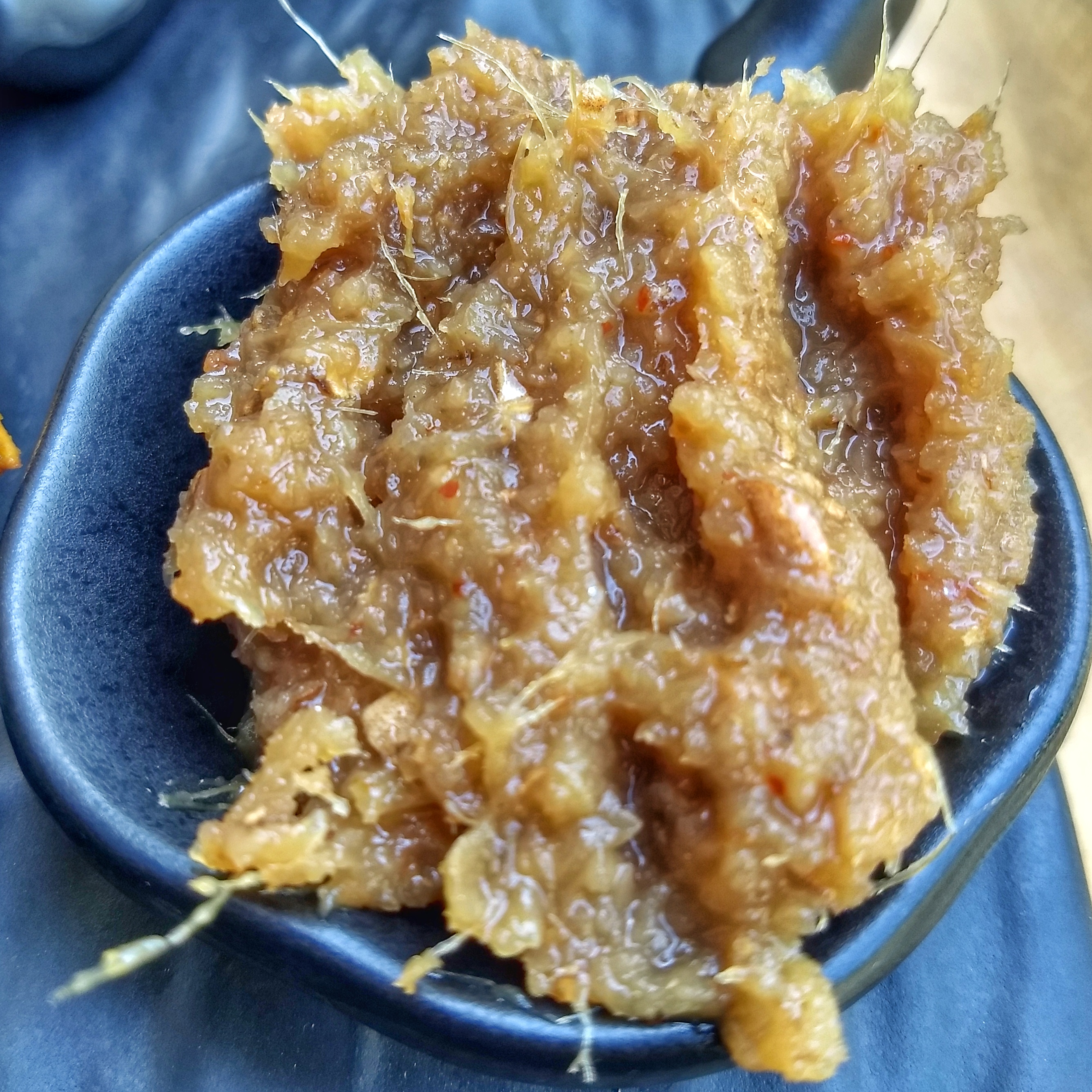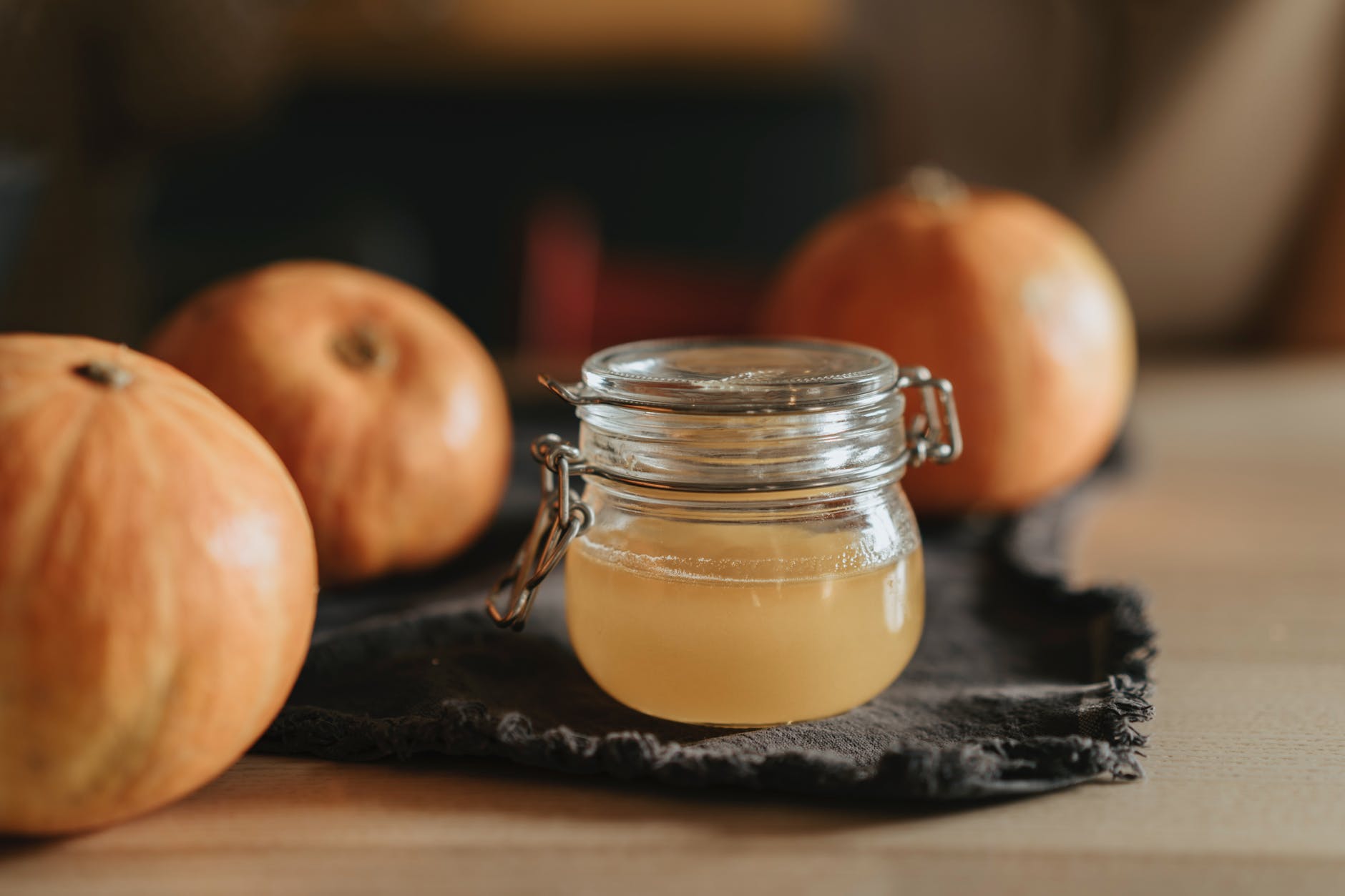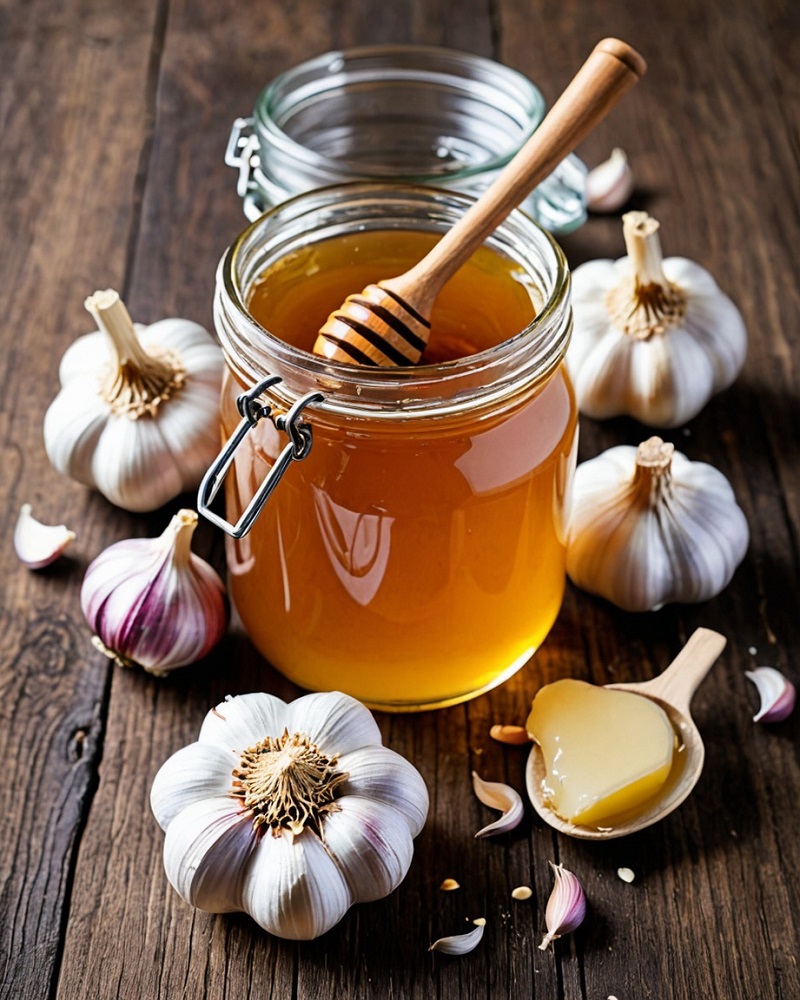
Garlic infused honey is a combination that has been used in many cultures for centuries and is still popular today. In Ancient Egypt, honey was often combined with garlic to create a remedy for a variety of ailments. In many parts of Asia, garlic and honey were combined to make a remedy for sore throat. In India, garlic and honey are used to treat asthma and other respiratory problems.
When it comes to immunity boosting foods, you don’t have to look too far. Your very own kitchen is a storehouse of ingredients that can help you nourish every day.
This garlic infused honey is great for cough, cold, viral infections, stomach flu, digestive system and to boost your immunity. I have been giving garlic infused honey to my little one since he was 3 years old, especially when there’s a change in season. Few months back I suggested this remedy to my helper whose 4-year-old kept catching cold every now and then. It has been over 5 months now she hasn’t had any cough or cold. Since then, I have suggested this remedy to many mothers and the feedback has been amazing. It has helped many kids to recover from cough & cold much faster.
What makes garlic powerful?
Garlic has been used for centuries not only for culinary purposes but also for medicinal purpose. Garlic was found in Egyptian pyramids and ancient Greek temples. Ancient medical texts from Egypt, Greece, Rome, China and India each prescribed medical applications for garlic. It contains allicin which makes it anti-bacterial, anti-fungal and anti-viral. Cooked garlic is beneficial but nothing, I repeat, nothing compares to raw garlic. Garlic when cooked loses many of its beneficial enzymes.
Benefits of Honey
Honey is a sweetener made from nectar collected from flowers. It is a natural preservative and is used in many recipes for its sweet flavour. Raw honey is full of enzymes, vitamins, and minerals, and acts as an antioxidant to fight off free radicals. It is antibiotic, antiviral, antiseptic, anti-inflammatory and anti-fungal. It is rich in vitamins, minerals and enzymes to boost immunity which is especially important when fighting an illness.
If you want to benefit from this recipe then it is imperative that you buy raw, unpasteurised honey. Look for words Raw & Unpasteurised on labels and not Organic.
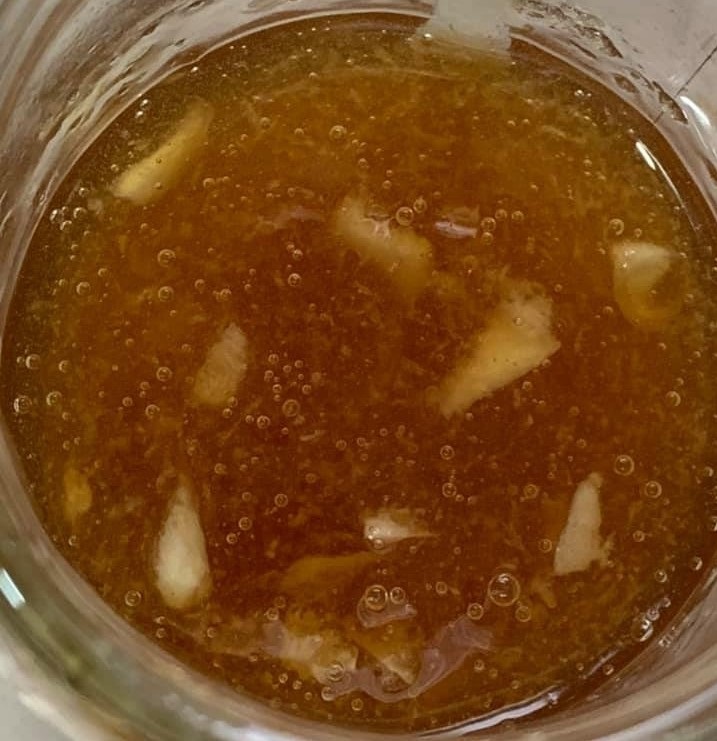
How to prepare it?
Ingredients
- Raw honey 150 ml
- Garlic 7-8 cloves
- Take honey in a glass bottle.
- Mince 7 to 8 cloves of garlic and mix it in honey. Alternatively, if you don’t want to add minced garlic, you can use whole garlic. I added minced garlic because my child can’t eat garlic. He might puke his bile juices out. 😄
- Let it remain infused for 2 to 3 days. Then you can consume it.
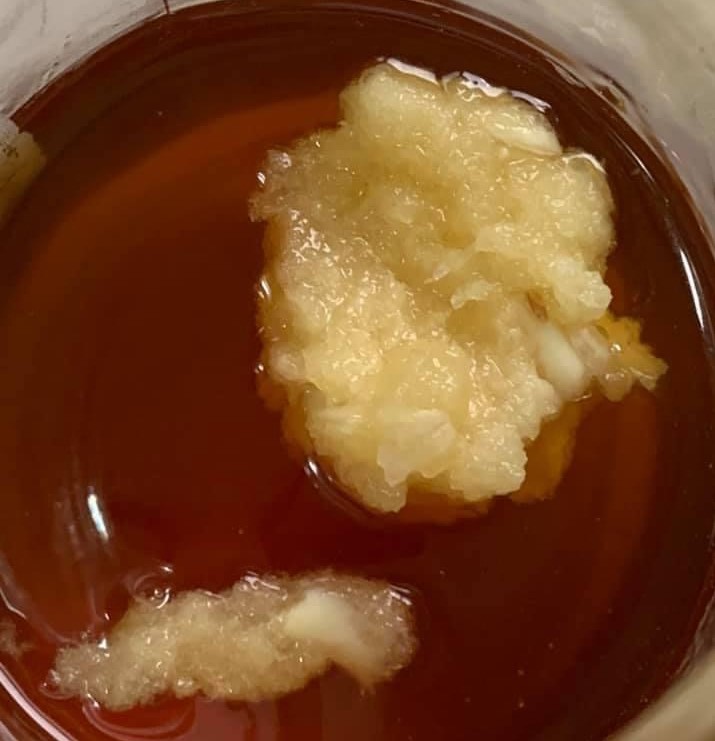
How to consume it?
You can have it either first thing in the morning or before bed time. In the Middle East, locals take a glass jar, fill it with honey and add slivers of garlic to it. They eat one or two pieces every morning.
What you should know before consuming it?
- If garlic on an empty stomach gives you a burning sensation, try having it 30 minutes after your breakfast or at night.
- If raw garlic makes you feel gassy and acidic then this may not be for you.
- If you have IBS, check with your doctor before consuming raw garlic.
Notes:
- Make sure the garlic is completely submerged in honey. If it is not, then it will catch mold. The trick is to add 1 or 2 tbsps of water on top. This will ensure that garlic doesn’t come on top.
- In a few days or weeks, you will notice tiny bubbles forming on the surface. Hooray!! The infusion has fermented.
- Stick to the quantity mentioned above or your infusion will not ferment. Too much honey or too less garlic could be the reason that the infusion did not ferment well.
- Store this infusion in a cool place. It will last you many months. The older it is the better.
- You can easily double or triple the recipe depending upon your requirement.
- The flavor will continue to develop overtime. The pungent taste of garlic will mellow down and honey will become runnier than before.
Enjoy good health! 🙂

